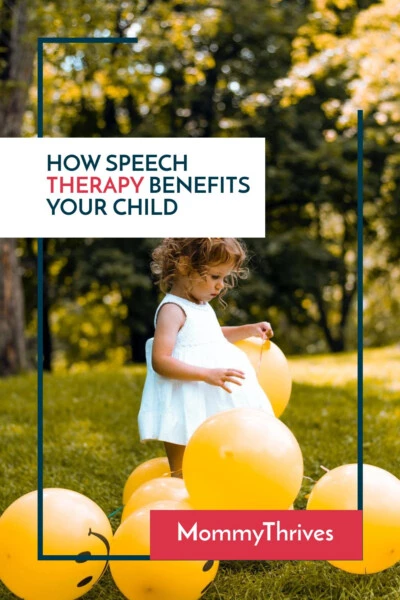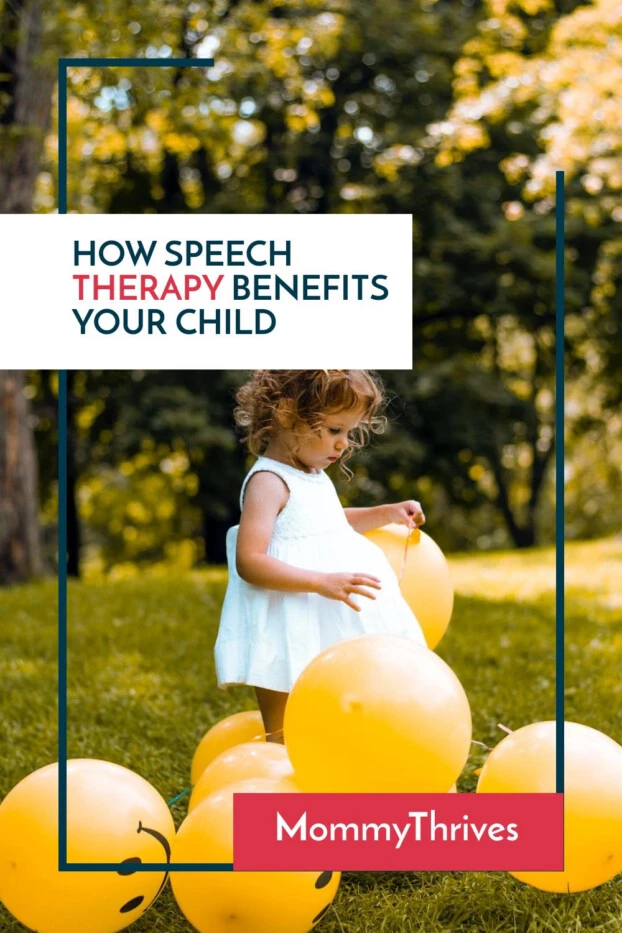Today I am sharing an article from Better Speech in which they tell us how speech therapy benefits children. Better Speech is an online speech therapy program for children and adults. It’s affordable and all sessions are online, which means you can get high quality speech therapy in the comfort of your own home.
Better Speech’s program alone is a benefit of speech therapy because your child will be able to feel comfortable being in their own environment instead of in a doctors office environment. Read more about how speech therapy benefits your child below.
Learning to speak and communicate effectively is an essential part of a child’s development. Every child acquires verbal and non-verbal skills to express themselves as they grow older.
Even younger kids who have not yet learned to form words indicate their needs using signs and body language. Typically, caregivers are attuned to the child’s signals and understand what they want. Although the development of speech progresses at individual paces, parents often wonder family might benefit from speech therapy for kids.
Here’s some interesting information that can help you make the right decision.

How Speech Therapy Benefits and Helps
Kids start to form words and thoughts at individual ages. Some pick up skills early on and are vocal about their needs and feelings. Others are shy and may take longer to speak.
Speech is not just about communicating with words, but it’s also about pronouncing words correctly. Kids must also learn how to enunciate words clearly so the listener can understand them. Comprehending what is being said is another facet of effective communication.
Speech therapy can not only help with these skills, but the sessions also benefit kids who find it hard to eat, chew, and swallow.
Speech training is about strengthening their oral muscles and stimulating the mouth structure to develop advanced sensitivity to tastes and textures. Parents dealing with kids who are fussy eaters might just find that speech training makes their tots more receptive to trying new foods.
How to Identify the Need for Speech Therapy
Raising a baby and watching them learn to communicate is an amazing experience. Parents should expect their kids to develop skills gradually. If they don’t, that’s a sign that speech therapy could help.
At the same time, it is essential to understand that every child is unique, and you must give them the time to grow at their own pace.
Age – Up to 6 to 7 Months
In the initial few months, babies are not responsive, but they start to explore their vocal skills at around four months. The adorable baby noises you hear at this time indicate the baby’s first attempts. If the infant is entirely quiet, you might need to get therapy at some time.
Age – 7 to 12 Months
Although babies cannot form actual words, they start to express themselves vocally using a range of different sounds. Most parents learn to identify these sounds and voice inflections to understand what the child needs.
If you’ve noticed a lack of these sounds, consider it a signal. Although it is advisable to sign up with a certified speech pathologist trained in working with young kids, parents can also learn to provide therapy at home.
Taking the NLN PAX practice exam allows parents to assess their abilities to help kids in a secure, loving environment.
Age – 7 to 24 Months
By the time your child is 24 months, they should be able to comprehend what is being said to them. While kids don’t understand words and their meanings quite yet, they are skilled at picking up cues from facial expressions and body language.
When you’re stern, that’s an indication that mommy or daddy is upset. But, a smile says that all is well with the world. Kids respond using gestures and actions, and if you don’t elicit this response, speech therapy may be needed.
For instance, saying, “Let’s get ice cream!” should have the child running to the door with you with a happy expression.
Age – 12 to 18 Months
Most toddlers speak their first words at this age. And gradually add more expressions to their repertoire of sounds. Parents provide lots of encouragement in the form of delighted responses and laughs. Many kids take their time, and it is not unusual for them to delay speaking those first words until 24 months.
This doesn’t necessarily mean that they’ll have any trouble with communication in the future. However, getting an evaluation from a speech pathologist could help you prepare for the possibility of needing sessions further on.
Age – 12 to 24 Months
At this stage, kids start learning proper pronunciation. They listen carefully as parents talk and try to imitate them. Repetition and practice are vital for developing the skills and require varying degrees of training vocal cords.
If you notice the child struggling to pronounce sounds like b, h, m, p, and w, you might need to sign them up for assessment.
Age – 18 to 24 Months
By this time, most kids have learned a collection of words and the technique of connecting them to form two-word phrases to make themselves understood. Expect demands like, “Up now!” “More milk!” or “Want Daddy!” But, if the child is not expressing them, you might need to get help.
At home, you can encourage language skills by trying simple singing games like “A Sailor Went to Sea, Sea, Sea.” Infusing music into speech will make it easier for kids to pick up words and make repetition fun. For instance, singing nursery rhymes during bath time and mealtime is helpful.
Age – 24 to 36 Months
Children continue learning more words from ages two to three years. Pronouncing letters like d, f, g, k, n, and t can present challenges for some kids.
Parents can help by breaking up words and getting kids to repeat after them. Constant practice helps resolve the issues on their own. But, if the child can’t seem to pick up the right words, you could consider therapy.

Age – 6 Years & Above
You might also want to look out for signs like shyness or not wanting to play with other kids. Communication problems with understanding or relaying what they want to say to the other kids can be mistaken for shyness, even by parents and teachers who know the child well.
While parents are used to their kids’ quirks and know what they’re saying, it may be harder for outsiders to comprehend words that are not expressed clearly.
Why Speech Therapy is Essential
Getting speech therapy early in a child’s development can help in many different ways. For instance, speech training helps build social bonds, so the child learns how to interact with peers in elementary school. Practical communication skills are highly essential so the child can express their thoughts, needs, and emotions.
Proper speech is critical when the child tries to build friendships through childhood and into teenage. Stuttering, lisping, difficulty in controlling voice modulation, and nasality can affect confidence levels and self-esteem. Reading, writing, and learning lessons and cognitive development can be impeded because of difficulty in understanding and speaking.

How Therapy Can be Given
Therapists help kids of all ages by way of sessions given in a group or classroom setting that includes similar peer groups and speech challenges. Alternatively, one-on-one sessions are also useful in helping teens in a secluded environment where they need not worry about ridicule and embarrassment. Online therapy is possibly the best option for kids to continue their sessions regardless of location and conveyance issues.
A child’s overall personality development, intelligence, and psychological stability are highly dependent on their ability to communicate. Speech training can also ensure proper chewing and swallowing by strengthening oral muscles and preventing future articulation and fluency problems. Start with an evaluation where the therapist conducts a test to check if your child needs help. The earlier you start with training sessions, the sooner will be the improvement.
For more information on my personal experiences with speech delay read more posts below:

